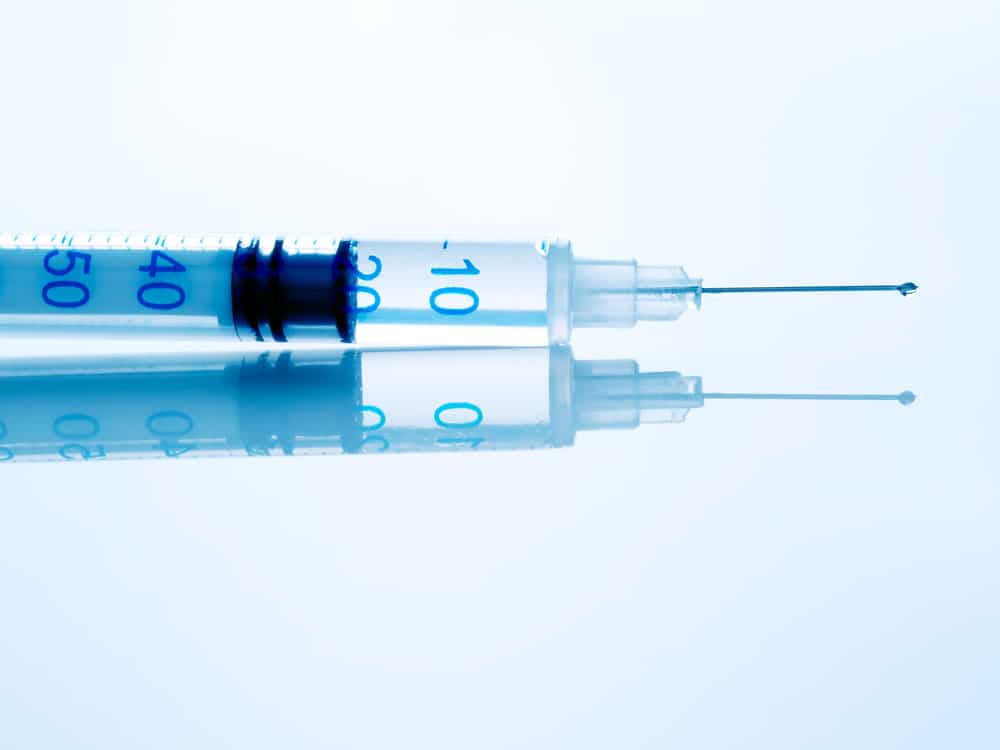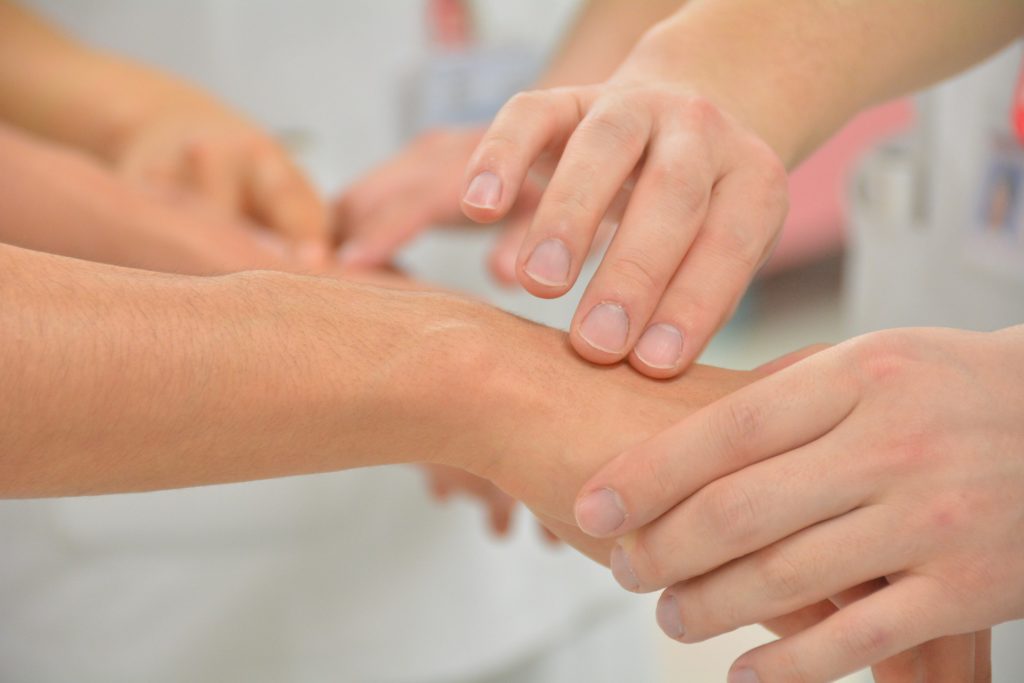hCG Therapy, Low Testosterone, and Male Fertility
For men who suffer from low testosterone, hCG (human chorionic gonadotropin) may be recommended alone or in combination with testosterone to attempt to preserve fertility and prevent testicular atrophy.

hCG is a naturally occurring hormone. hCG is generally only produced by women during pregnancy, but it is an analog of luteinizing hormone (LH), which is produced in a man’s pituitary gland and plays a critical role in men by signaling the testes to produce testosterone.
While injectable testosterone is our preferred method of addressing low testosterone, not everyone is a candidate
For men who already suffer from infertility, hCG is sometimes used in an attempt to restore fertility.
Causes of Infertility in Men
Male infertility has a variety of potential causes, including:
- Low testosterone
- Testosterone Replacement Therapy
- An imbalance of other hormones
- Sexually transmitted diseases
- Erectile dysfunction
- Psychological issues
- Alcohol or drug use, abuse, or dependency
- Genetic abnormalities like Klinefelter syndrome
- Injury to the genitals
- Undescended testicles
- Vasectomy
- Varicocele
hCG is only one possible treatment for infertility. It is not guaranteed to work in all cases. For example, it cannot help men who may have fertility issues due to erectile dysfunction or opioid dependence.
In fact, depending on the cause of your infertility, hCG may have no effect at all.
hCG May Preserve Fertility and Prevent Testicular Atrophy
There are two potential side effects of Testosterone Replacement Therapy that often concern men:
- Testicular atrophy
- Loss of fertility (often through a reduced sperm count)
Testosterone Replacement Therapy alone can decrease the brain’s hormonal stimulation of the testes, reducing fertility and causing the testes to atrophy.
Combining hCG with Testosterone Replacement Therapy can help to maintain testicular function and resist atrophy.
While fertility may be maintained through the exclusive use of hCG, your testosterone is not likely to reach optimal levels.
2 Methods of hCG Treatment: hCG Monotherapy or Combination Therapy
Maintaining fertility is often not a concern to many Testosterone Replacement Therapy candidates because men who are suffering from low testosterone have often reached an age where they have either:
- Had all the children they intend to have
- Have definitively chosen not to have children
Still, using only hCG for low testosterone is a possibility if you feel strongly that you want to maintain your fertility. This is known as hCG monotherapy.
Most patients on hCG monotherapy self-administer injections 3 times a week. It’s a rigorous schedule and not easy to maintain.
Much more common is combination therapy. This involves an injection of hCG combined with your normal testosterone injection, once a week. This can curtail testicular atrophy, and it may have a small protective effect on fertility.
The role of hCG and its effects on male fertility are serious matters to some patients, so we’ll discuss the issue in a bit more detail.
hCG May Preserve Fertility in Men — Sperm Count Can Return After Discontinuing TRT

Testosterone Replacement Therapy (TRT) can often decrease sperm count, which is the main reason that men who still plan on having children will hold off on testosterone-based therapy and opt for hCG monotherapy initially.
hCG (human chorionic gonadotropin) is one of many different infertility treatment options for men, but it tends to work best in men who suffer from secondary hypogonadism.
Hypogonadism is the medical term for low testosterone. “Secondary” means the cause of low testosterone centers in the pituitary gland or hypothalamus, as opposed to “primary” hypogonadism, where the cause of low testosterone is damage to or dysfunction of the testes themselves.
For men with low testosterone who still plan to have children, hCG monotherapy may be a good place to start. In some cases, hCG does have a limited capacity to induce testosterone production in the male body and may be sufficient on its own. Unfortunately, in our clinical experience, it’s occasionally ineffective at restoring testosterone to therapeutic levels.
If hCG is unable to restore fertility and you decide to begin TRT, you may still be able to restore your fertility at a later time by simply discontinuing therapy.
Based on the available scientific literature, your sperm count should return to normal after Testosterone Replacement Therapy has been discontinued for several months.
Male Fertility Due to Physical or Psychological Blocks Will Not Be Restored by hCG

After treatment with hCG, male fertility may be restored if the underlying cause of infertility is hormonally based.
If your testes and penis work as they should, but your hormone levels are preventing you from producing sperm at levels required to get your partner pregnant, and this is combined with low testosterone, hCG may help to restore fertility while also partially or fully addressing your low testosterone levels.
Unfortunately, it is not always the case that male infertility is being caused by a hormonal imbalance.
For example, if you suffer from damage to the testes, the inability to achieve or maintain an erection, drug/alcohol abuse/dependence, or psychological issues, hCG is not going to help.
hCG May Help With Weight Loss, Gym Performance
When coupled with a healthy diet and moderate exercise, hCG injections may help patients achieve their weight loss goals.
Along with weight loss on the scale, hCG may also help lower cholesterol while simultaneously changing your weight distribution.
hCG is purported to slim so-called “problem areas,” such as the mid-section, arms, and thighs. In that way, hCG may benefit men who are looking to achieve a more well-proportioned body. Even if you aren’t losing much weight, you may find that the weight itself is more evenly (and more attractively) distributed.
Lower cholesterol may improve your cardiovascular health and may keep your blood pressure at a more optimum level, which may reduce the risk of heart disease.
However, hCG diets almost exclusively require a very low calorie diet (VLCD). This is defined as a diet of less than 800 calories per day, but most diets actually require participants to lower their consumption to 500 calories per day. There is much debate about whether it’s the hCG or the VLCD that contributes the most to weight loss.
hCG may also benefit muscle mass retention, working against the muscle loss that comes as a consequence of sticking to a low-calorie diet. You may be able to slow muscle breakdown without sabotaging your weight loss goals in the process.
Learn More About Testosterone Replacement Therapy (TRT)
hCG is only a small potential part of the Testosterone Replacement Therapy puzzle. There are a variety of potential side effects and benefits that should be considered.
To learn more about Testosterone Replacement Therapy (TRT), read our complete guide on the subject. Every question you’ve ever had about TRT is answered here.
